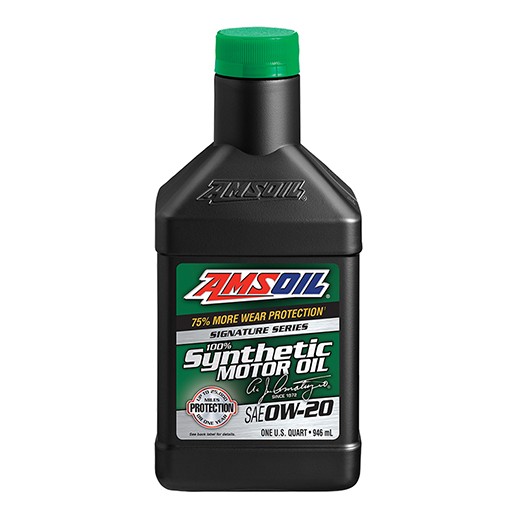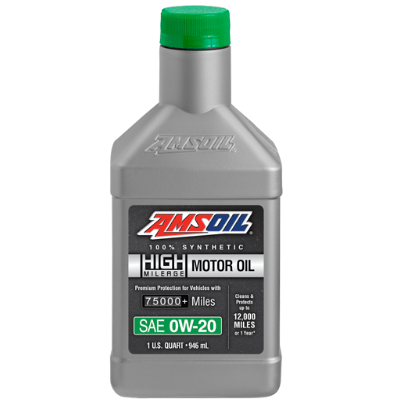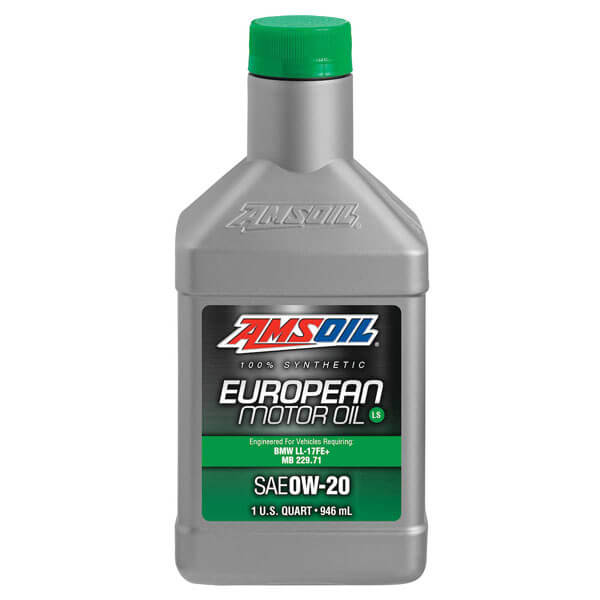Is 0W-20 Oil Synthetic? Unveiling the Truth
When it comes to engine performance and protection, the type of oil you choose makes all the difference. One of the most talked-about options is 0W-20 oil, a popular choice among vehicle manufacturers and drivers alike. But the question remains: is 0W-20 oil synthetic? This article will peel back the layers of engine oil terminology and explore the benefits of synthetic versus conventional oils. We’ll unveil the truth behind 0W-20’s formulation, its implications for your engine’s longevity, and how it stacks up against other oil grades. Whether you’re a seasoned car enthusiast or a casual driver, understanding the dynamics of your engine oil can lead to better performance and protection. Join us as we delve into the facts and myths surrounding 0W-20 oil, ensuring your engine runs smoothly for years to come.
Understanding Engine Oil: What Does 0W-20 Mean?
Engine oil grades can often seem like a complex code, but understanding what they mean is crucial for
maintaining your vehicle’s health. The ‘0W-20’ label on engine oil is a specification set by the Society of
Automotive Engineers (SAE), which helps categorize oil based on its viscosity characteristics. Viscosity, in
simple terms, refers to the oil’s thickness and its ability to flow at different temperatures. The two numbers in 0W-20 indicate the oil’s performance in cold and hot conditions.
The ‘0’ before the ‘W’ stands for the oil’s viscosity rating in cold temperatures. ‘W’ stands for winter, and the lower the number before ‘W,’ the better the oil performs in cold weather. A ‘0’ rating means the oil remains thin enough to flow easily at very low temperatures, providing quick lubrication during cold starts. This is particularly beneficial in colder climates where engines need immediate protection upon ignition.
The ’20’ represents the oil’s viscosity at a high temperature of 100°C (212°F). When the engine reaches its
operating temperature, the oil maintains a certain thickness to ensure continuous protection. A ’20’ rating is considered relatively low, which means the oil is thinner at high temperatures compared to oils with higher numbers, like 10W-40. This balance ensures that the oil provides optimal lubrication and reduces friction across a wide temperature range, enhancing engine performance and longevity.
The Basics of Synthetic vs. Conventional Oil
Engine oils can be broadly categorized into synthetic and conventional types, each with distinct characteristics and benefits. Conventional oil, also known as mineral oil, is derived directly from crude oil. It undergoes basic refining processes to remove impurities and enhance its lubricating properties. While affordable and readily available, conventional oil typically contains more impurities and does not perform as consistently at extreme temperatures.
Synthetic oil, on the other hand, is engineered through a more complex chemical process. It involves the
synthesis of chemically altered petroleum components or entirely new chemical compounds. This results in a highly refined product with uniform molecular structures, significantly reducing impurities. Synthetic oils are designed to provide superior performance across a broader range of conditions, including extreme temperatures and high-stress operations.
One of the main advantages of synthetic oil is its stability and consistency. It offers better oxidation resistance, which means it does not break down as quickly as conventional oil. This leads to longer-lasting protection, reduced engine wear, and improved performance. Additionally, synthetic oils often contain advanced additives that further enhance their protective properties, such as detergents, anti-wear agents, and friction modifiers. These additives can help keep the engine clean, prevent sludge build-up, and extend the oil change intervals.
Is 0W-20 Oil Synthetic or Conventional?
The classification of 0W-20 oil as either synthetic or conventional depends on the formulation used by the
manufacturer. Generally, 0W-20 oil is predominantly available as a synthetic or synthetic blend. This is because achieving the low viscosity and high-performance characteristics required for the 0W-20 specification is challenging with conventional oil alone.
Synthetic 0W-20 oil is formulated using high-quality base oils and advanced additives to meet the stringent performance standards. The synthetic formulation ensures that the oil remains stable and effective over a wide temperature range, providing optimal lubrication and protection in both cold starts and high-temperature conditions. This makes it a preferred choice for modern engines, which demand high efficiency and durability.
In some cases, you may find 0W-20 oil labeled as a synthetic blend. This means that the oil contains a mixture of synthetic and conventional base oils. While it may not offer the same level of performance as fully synthetic oil, synthetic blends still provide improved protection and efficiency compared to conventional oils. They are often a more cost-effective option for drivers looking to balance performance and affordability.
Ultimately, whether 0W-20 oil is synthetic or conventional will depend on the specific product you choose. It is essential to read the label and understand the formulation to make an informed decision. For most modern vehicles, fully synthetic 0W-20 oil is recommended to ensure optimal engine performance and longevity.
The Benefits of Using 0W-20 Synthetic Oil
Using 0W-20 synthetic oil offers numerous benefits that can enhance your vehicle’s performance and extend its lifespan. One of the primary advantages is superior engine protection. Synthetic oil’s consistent molecular structure allows it to provide a more stable lubricating film, reducing friction and wear on engine components. This is particularly important during cold starts when the oil needs to flow quickly to critical engine parts.
Another significant benefit of 0W-20 synthetic oil is improved fuel efficiency. The low viscosity of the oil
reduces internal engine friction, allowing the engine to operate more smoothly and efficiently. This can lead to better fuel economy, saving you money at the pump over time. Additionally, synthetic oils are designed to maintain their viscosity and protective properties longer than conventional oils, which means fewer oil changes and less maintenance.
Synthetic 0W-20 oil also offers better thermal stability and oxidation resistance. This means it can withstand higher temperatures without breaking down or forming harmful deposits. The oil’s ability to resist oxidation helps keep the engine clean and prevents the build-up of sludge and varnish. This not only extends the life of the oil but also contributes to the overall health and longevity of the engine.
Furthermore, synthetic oils often contain advanced additives that provide additional benefits. These additives can include detergents to keep the engine clean, anti-wear agents to protect critical components, and friction modifiers to enhance performance. By using 0W-20 synthetic oil, you can ensure that your engine receives the best possible protection and performance, no matter the driving conditions.
How 0W-20 Oil Affects Engine Performance
The impact of 0W-20 oil on engine performance is significant, especially in modern vehicles designed to operate with low-viscosity oils. One of the key ways 0W-20 oil enhances engine performance is by providing excellent cold-start protection. When you start your engine, particularly in cold weather, oil needs to flow quickly to lubricate moving parts and prevent wear. The low viscosity of 0W-20 oil ensures rapid circulation, reducing the time it takes for the oil to reach critical areas and minimizing wear during start-up.
Another way 0W-20 oil improves performance is by reducing internal friction. The thin nature of the oil allows it to flow more easily between engine components, reducing friction and enabling the engine to operate more efficiently. This can lead to smoother operation, quicker acceleration, and overall better performance. Additionally, the reduced friction means less heat is generated within the engine, helping to maintain optimal operating temperatures.
The stability of 0W-20 synthetic oil at high temperatures also plays a crucial role in performance. Modern
engines often operate at higher temperatures and under greater stress than older engines. The thermal stability of synthetic 0W-20 oil ensures that it remains effective even under these demanding conditions. This helps prevent oil breakdown, maintaining consistent lubrication and protection. As a result, the engine can perform at its best, delivering reliable power and efficiency.
Moreover, the advanced additives in 0W-20 synthetic oil contribute to improved engine performance. These additives can help reduce deposits, keep the engine clean, and protect against wear and corrosion. By maintaining a clean and well-lubricated engine, 0W-20 oil supports optimal performance and extends the life of your vehicle.
The Role of 0W-20 Oil in Fuel Efficiency
Fuel efficiency is a critical consideration for many drivers, and 0W-20 synthetic oil can play a significant role in improving it. One of the primary ways 0W-20 oil enhances fuel efficiency is by reducing internal engine friction. The low viscosity of the oil allows it to flow more easily between moving parts, minimizing resistance and allowing the engine to operate more smoothly. This reduction in friction translates to less energy required to run the engine, which in turn improves fuel economy.
Another factor contributing to improved fuel efficiency is the reduced weight of 0W-20 oil compared to higher viscosity oils. Lighter oil means less drag on engine components, allowing the engine to work more efficiently. This can lead to better mileage and fuel savings over time. In addition, the superior lubrication provided by synthetic 0W-20 oil ensures that the engine operates at optimal efficiency, further enhancing fuel economy.
The stability of 0W-20 synthetic oil at various temperatures also contributes to fuel efficiency. Traditional oils can thicken in cold temperatures, making it harder for the engine to start and causing increased fuel
consumption. Conversely, 0W-20 oil remains thin and flows easily even in cold weather, ensuring that the
engine starts quickly and operates efficiently. This consistency in performance helps maintain fuel efficiency regardless of the external conditions.
Furthermore, the advanced additives in synthetic 0W-20 oil can enhance fuel efficiency by keeping the engine clean and preventing the build-up of deposits. Deposits can hinder engine performance and reduce fuel economy by causing inefficient combustion and increased friction. By using 0W-20 synthetic oil, you can keep your engine running smoothly and efficiently, maximizing fuel efficiency and saving money at the pump.
Common Misconceptions About 0W-20 Oil
Despite the benefits of 0W-20 oil, there are several common misconceptions that can lead to confusion among drivers. One widespread misconception is that thinner oils like 0W-20 cannot provide adequate protection for high-performance or heavy-duty engines. However, modern synthetic oils are engineered to offer exceptional protection and performance across a wide range of conditions. The advanced formulation of 0W-20 synthetic oil ensures that it provides robust protection even under high-stress operations.
Another misconception is that using 0W-20 oil in older vehicles can cause leaks or damage. While it’s true that switching to a lower viscosity oil in an older engine can sometimes lead to leaks if the engine has worn seals, this is not a common occurrence. Synthetic oils like 0W-20 can actually help condition seals and prevent leaks. It is essential to follow the manufacturer’s recommendations and consider the condition of your engine when choosing the oil.
Some drivers also believe that synthetic oils like 0W-20 are too expensive and not worth the investment. While synthetic oils typically cost more upfront, their long-term benefits can outweigh the initial expense. Synthetic oils offer extended oil change intervals, better fuel efficiency, and superior engine protection, which can result in cost savings over time. Additionally, the enhanced performance and longevity of synthetic oils can reduce overall maintenance costs and extend the life of your vehicle.
Lastly, there is a misconception that all 0W-20 oils are the same. In reality, there can be significant differences in quality and performance between various brands and formulations of 0W-20 oil. It is crucial to choose a reputable brand and ensure that the oil meets the required specifications for your vehicle. By selecting high-quality 0W-20 synthetic oil, you can ensure optimal engine performance and protection.
Recommendations for Choosing the Right Oil for Your Vehicle
Selecting the right oil for your vehicle is crucial for maintaining its performance and longevity. Here are some recommendations to help you make an informed decision. First and foremost, always refer to your vehicle’s owner manual for the manufacturer’s recommended oil specifications. The manual will provide information on the recommended oil viscosity and whether synthetic oil is required. Following these guidelines ensures that you are using the oil that best suits your engine’s design and performance requirements.
Consider the driving conditions and climate in which you operate your vehicle. If you live in an area with
extreme temperatures, synthetic oil like 0W-20 can offer better protection and performance. Synthetic oils are formulated to remain stable and effective across a wide temperature range, providing optimal lubrication in both cold starts and high-temperature conditions. Additionally, if you frequently drive in stop-and-go traffic, tow heavy loads, or engage in high-performance driving, synthetic oil can offer enhanced protection and durability.
Evaluate the oil change intervals and maintenance schedule for your vehicle. Synthetic oils typically offer
extended oil change intervals compared to conventional oils. If you prefer longer intervals between oil changes, synthetic oil can be a convenient and cost-effective option. However, it is essential to follow the manufacturer’s recommendations and not exceed the recommended oil change intervals, as regular maintenance is crucial for engine health.
Lastly, choose a reputable brand and ensure that the oil meets industry standards and certifications. Look for oils that carry the American Petroleum Institute (API) certification and meet the specifications outlined by your vehicle manufacturer. High-quality synthetic oils from trusted brands often include advanced additives that provide additional benefits, such as improved cleanliness, anti-wear protection, and friction reduction. By selecting a reputable brand and the right oil formulation, you can ensure that your engine receives the best possible protection and performance.
Frequently Asked Questions About 0W-20 Oil
Many drivers have questions about 0W-20 oil and its suitability for their vehicles. Here are some frequently asked questions to help clarify common concerns. One common question is whether 0W-20 oil can be used in any vehicle. While 0W-20 oil is suitable for many modern vehicles, it is essential to check your owner’s manual for the manufacturer’s recommendations. Some older vehicles or high-performance engines may require a different viscosity grade or specific oil formulation.
Another frequently asked question is whether synthetic 0W-20 oil can be mixed with conventional oil. While it is generally safe to mix synthetic and conventional oils in an emergency, it is not recommended for regular use. Mixing oils can dilute the benefits of synthetic oil and reduce its performance and protective properties. It is best to use the same type of oil consistently and follow the manufacturer’s recommendations for oil changes.
Drivers also often ask about the oil change intervals for 0W-20 synthetic oil. Synthetic oils typically offer longer oil change intervals compared to conventional oils, but the exact interval can vary depending on the vehicle and driving conditions. It is essential to follow the manufacturer’s recommendations for oil change intervals and not exceed them. Regular oil changes are crucial for maintaining engine health and ensuring optimal performance.
Lastly, some drivers wonder if using 0W-20 synthetic oil will void their vehicle warranty. Using oil that meets the manufacturer’s specifications and recommendations will not void your warranty. In fact, many
manufacturers recommend or require the use of synthetic oil for their vehicles. It is important to use oil that meets the required specifications and to keep records of oil changes and maintenance to ensure your warranty remains valid.
Conclusion: Making Informed Decisions About Engine Oil
Choosing the right engine oil is essential for maintaining your vehicle’s performance and longevity.
Understanding the differences between synthetic and conventional oils, and the specific benefits of 0W-20 synthetic oil, can help you make an informed decision. Synthetic 0W-20 oil offers superior protection, improved fuel efficiency, and enhanced performance, making it an excellent choice for many modern vehicles.
While there are common misconceptions about synthetic oils, it is important to rely on accurate information and follow the manufacturer’s recommendations. By selecting high-quality synthetic oil and adhering to the recommended maintenance schedule, you can ensure that your engine receives the best possible care. Whether you are a seasoned car enthusiast or a casual driver, understanding the dynamics of your engine oil can lead to better performance and protection.
In conclusion, making informed decisions about engine oil can significantly impact your vehicle’s health and performance. By choosing the right oil, you can enjoy a smoother, more efficient driving experience and extend the life of your engine. With the benefits of 0W-20 synthetic oil, you can ensure that your engine runs smoothly and efficiently, providing you with peace of mind and confidence on the road.




